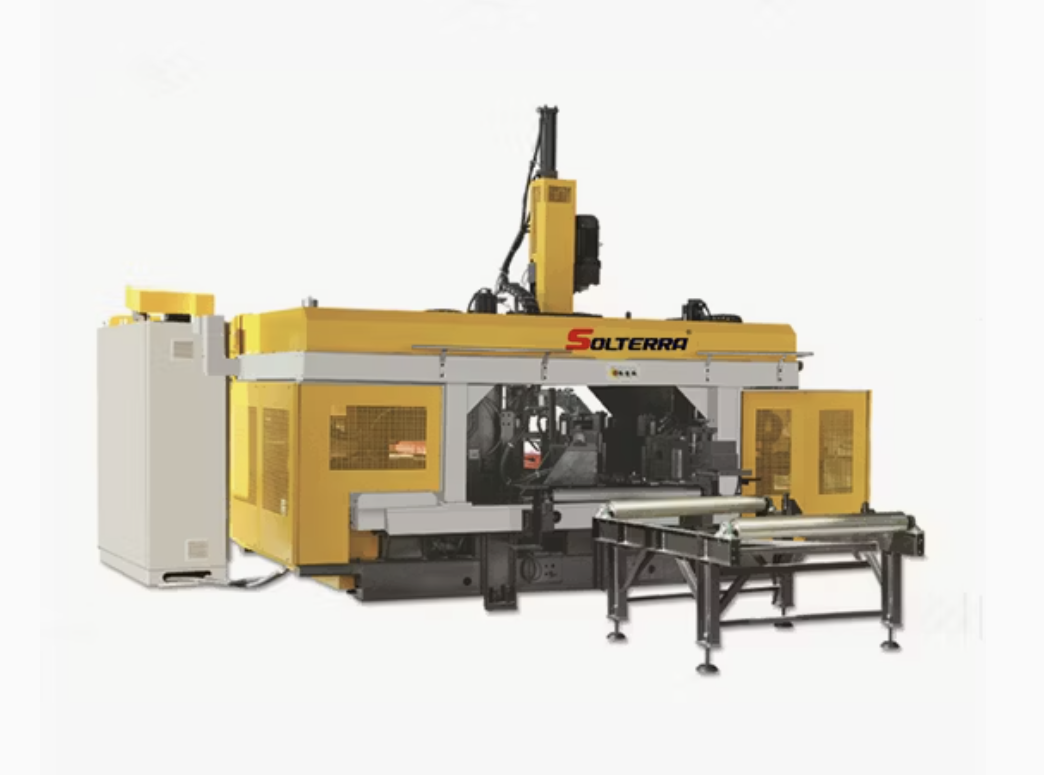
Posted on Tuesday, November 26, 2024
Metal fabrication machines play a critical role in various industries, enabling the production of high-quality, precision-engineered components and structures. These machines not only improve efficiency but also ensure consistent results across diverse applications. This blog explores how metal fabrication machines are used in four major industries: manufacturing and industrial equipment, agricultural machinery, packaging equipment, and appliance production.
A car parts manufacturer integrates CNC machines and welding robots into their production line, enabling mass production of complex parts like engine components and vehicle frames. These machines significantly reduce production time while maintaining tight tolerances.
A CNC (Computer Numerical Control) machine is a tool that uses pre-programmed software to control the movement of machinery, enabling precise cutting, milling, and shaping of materials.
A farm equipment company relies on robotic welders to streamline production and ensure consistency. These machines help assemble large machinery such as combines and harvesters, reducing labor costs and production time.
Roll forming machines shape metal into long, uniform profiles by gradually bending the material through a series of rollers. They are widely used in industries requiring repetitive shapes like agricultural silos or metal roofing.
A beverage bottling company employs metal saws and bending machines to design custom packaging solutions. These machines produce frames and components for high-speed conveyor systems, ensuring smooth operations on the production line.
A metal press is a machine used to shape or mold metal by applying pressure. It’s commonly used in the packaging industry to form parts for machinery.
An appliance manufacturer incorporates surface grinders and turret punches in its production line to create durable, aesthetically pleasing appliance components like oven doors and washing machine panels.
Surface grinders are machines designed to produce smooth finishes on flat surfaces by removing small amounts of material with a rotating abrasive wheel.
Robotic welders improve speed, accuracy, and consistency while reducing human error and labor costs. They are particularly beneficial in high-volume production environments.
CNC machines offer unparalleled precision and repeatability, making them ideal for producing intricate designs and components. Their automation capabilities also reduce waste and labor requirements.
Roll forming machines are perfect for producing durable and uniform parts like grain silos and irrigation pipes. Their ability to handle large volumes efficiently makes them cost-effective for agricultural use.
Yes, most metal fabrication machines can be tailored with industry-specific configurations, such as custom tooling or programming for specialized tasks.
Metal fabrication machines are indispensable across industries, enabling the production of everything from car parts to agricultural tools and appliances. With their ability to improve efficiency and precision, these machines remain at the heart of modern manufacturing and industrial processes.

Used Purlin Roll Forming Machines for Sale Worldwide
Posted on Sunday, January 25, 2026
Pre-Owned Roll Forming Machines for Purlin & Structural Steel Profiles

Used Roof Panel Roll Forming Machines for Sale Worldwide
Posted on Sunday, January 25, 2026
Pre-Owned Roll Forming Machines for Roofing Panel Production

Used Roll Forming Machines for Sale Worldwide
Posted on Tuesday, January 20, 2026
Pre-Owned Roll Forming Machines with Inspection, Verification & Global Support

Steel Coil Supply for Roll Forming Machines Worldwide
Posted on Tuesday, January 20, 2026
Reliable Steel Coil Supply for Roll Forming, Fabrication & Manufacturing Applications
Copyright 2026 © Machine Matcher.